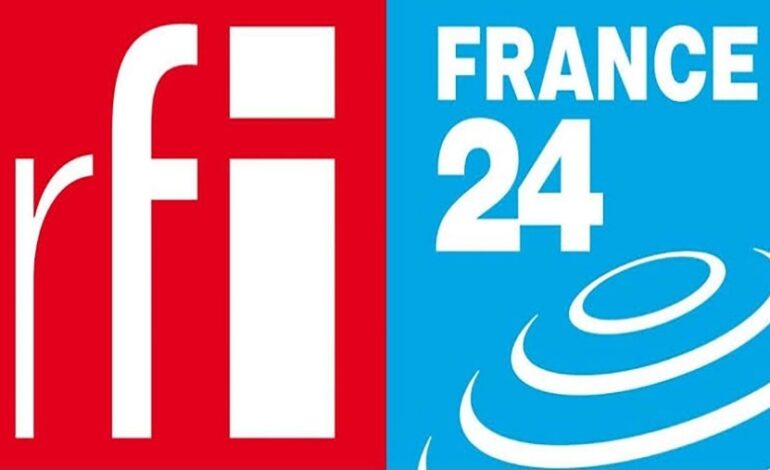
Wayne Lumbasi
Online gambling has been gaining traction in Africa. Although the African market only accounts for 1.1% of online gambling worldwide, it is a booming industry in the region.
Africa is getting more and more attention from foreign investors and casino owners. After years of restrictions, several African countries have just recently welcomed legal gambling on their territories, making online casino games, in particular, a relatively new concept on the continent.
On social media, twitter especially, young people routinely share their personal gambling experiences on sites such as Lotto star, Betway, sportybet, sportpesa, Hollywood bets and World Sports Betting.
Many young men bet on football games, and talk openly about it, even sharing screenshots of their hefty winnings. What has been missing, however, are the converse narratives. What about the rest who are losing?
Most Africans are quite passionate about gambling, both offline and online, but there are a few countries where the legal online gambling market is particularly thriving.

SPORTS BETTING IN SOUTH AFRICA
More than 80% of the entire gambling activity in the Savanna continent belongs to South Africa. Local punters can lawfully enjoy all forms of betting and play beloved games in numerous brick-and-mortar casino establishments.
South Africans have been playing games for enjoyment for many years and are interested in a variety of games and activities. Post-Apartheid, South Africa underwent a dramatic transformation in most ways areas, gambling included.
The National Responsible Gambling Programme (NRGP), a regulatory body, was set up to take the industry into the 21st century by legalizing casinos, lotteries, sports betting and bingo. Under the guidance of the NRGP, in less than a decade, a number of bricks and mortar casinos had mushroomed across the land, and South Africans could buy tickets for a lottery with multi-million Rand jackpots.
In 2014 a draft bill of the Remote Gambling Bill was introduced in parliament, which encouraged the South African general public to voice their opinions about the possible legalization of online gambling in the country.
Today’s gambling takes place in casinos, at bookies, in gaming parlors as well as increasingly online. One of the fastest-growing parts of the gambling business is the online gaming market. South Africa’s online casinos have taken over the gambling business by allowing customers to wager from anywhere in the country.
Players may deposit cash and withdraw wins in South African rands at these online casinos. They also accept a variety of payment ways. To ensure secure online transactions, all payment options are verified and trustworthy.

The number of online casinos establishing themselves in South Africa is increasing. For many years, land-based gaming has been the standard in South Africa. Physical gambling establishments may be located throughout the country.
Sun City, arguably the most well-known of South Africa’s casinos, attracts hundreds of thousands of local and international tourists each year due to its vast family-friendly resort. It also hosts the annual Nedbank Golf Challenge, which is the wealthiest golf event in the world.

The Gold Reef City Casino, which is constructed at the goldmines that gave Johannesburg its renowned nickname “the City of Gold,” is another gaming icon. There are over 1600 slot and video poker machines and 50 table games such as roulette and blackjack.
GrandWest Casino and Entertainment World in Cape Town is South Africa’s largest casino, with over 2560 smart card slot and video poker machines, as well as 79 premium table games, all of which take a broad range of currency and chip denominations to suit any budget.
New gaming legislation has allowed for the creation of additional gambling businesses in South Africa. Given the high rates of youth unemployment (ages 18 to 35) and very poor pay levels in South Africa, a growing number of young people are looking for alternate sources of income, and gaming appears to be appealing.
In South Africa, a rising number of young people are participating in gambling-related activities. Due to government initiatives to raise tax revenues and attract many visitors, the gambling sector is developing worldwide, and South Africa is not being left behind.
Because of the economic benefits, several countries have legalized or are contemplating legalizing gambling. This indicates that the industry is moving forward and shows no signs of slowing down.
As the rate of sports betting keeps increasing all over the world, it is only natural for focus to be placed on the present and future value of the industry.
As a result, more South Africans are finding gambling on sports events an interesting activity to engage in. This has contributed to the fair increase in the revenues that the industry has experienced within the country. Yet, to ensure adequate safety, players are advised to gamble at licensed betting sites.

WHY IS SPORTS BETTING RISING IN AFRICA?
There are a number of reasons why Africans in large numbers are spending huge amounts of money on sports betting. Offshore operators of sports betting services are getting attracted to Africa in large numbers for very good reasons.
High Population of Unemployed Youth
More than 200 million people in Africa are in the age group of 15 to 24 and a large number of them do not have jobs. Certain African countries have an unemployment rates that are as high as 25%.
In addition, the population of Africa is believed to become twice as big by 2050 and the continent will have the world’s largest youth population. The sports betting industry gives these young people an opportunity to earn as they enjoy their favorite sports events.
Great Love for Sports
Africans are crazy about sports. Although football has the largest number of fans, cricket also has its fair share of followers. In Zimbabwe, South Africa, and Kenya, rugby also enjoys a great deal of popularity. European football leagues in general and the Spanish, English, Italian, and French leagues in particular have African fans in millions.
Africans also love placing bets on sports such as hockey, basketball, tennis, car, boxing, horse races, motorcycle racing, and other sports. They are especially enthusiastic about placing bets on outcomes of matches, number of goals, players who score the most, and so on. It is this African craze for sports that makes its sports betting industry one of the most lucrative in the world.
Lenient Sports Betting Laws
European and US sports betting companies are fast expanding into Africa because of the lenient sports betting laws in most African countries. In fact, South Africa is the only country that has properly regulated its gambling market. In most African countries, gambling laws are new and the fledgling industry is not yet regulated.
At the same time, certain Muslim-majority African countries have imposed a blanket ban on sports betting and placing bets on sports is definitely illegal there. Gambling is also illegal in The Gambia, which has banned all forms of gambling including sports betting, casinos, and lotteries.
Rising Popularity of Mobile Gambling
The use of mobile devices is on the rise in Africa. More and more Africans are discovering the joys of sports betting on the move. African operators of sports betting services have partnered with top mobile phone operators to link mobile money services such as M-Pesa, Orange Money, and Airtel Money with their sports betting products. As a result, Africans enjoy sports betting not only on their desktops, but also on their smartphones and tablets.

CONCLUSION
With the expansion of the gambling industry, opportunities to engage in gambling are numerous. Given the high level of youth unemployment and the genuinely low wages in Africa, an increasing number of youth find themselves participating in gambling-related activities without being aware of the potential undesirable effects that may culminate from gambling addiction.
Unfortunately, there is a dearth of prevention programs or specific treatment facilities for youth gambling. Therefore, a specific set of actions should be taken.
● First, rigorous enforcement of laws prohibiting underage gambling should be enacted.
● Second, strategies to increase education and public awareness regarding the issue of problem gambling are of core necessity.
● Third, more resources and funding to help increase the currently scarce mental health and addiction programs related to problem gambling are needed.
● Fourth, collaborative efforts between governments, private, and civil society sectors as well as prevention specialists, legislators, researchers, and treatment providers will help contribute to the development of social policies and effective public health intervention options for treatment of youth and adults alike with problem gambling within the region.
With this in mind, future studies will need to investigate whether there are differences in gambling and problem gambling behaviors, as well as gambling correlates, among people from different countries.





Recent Comments